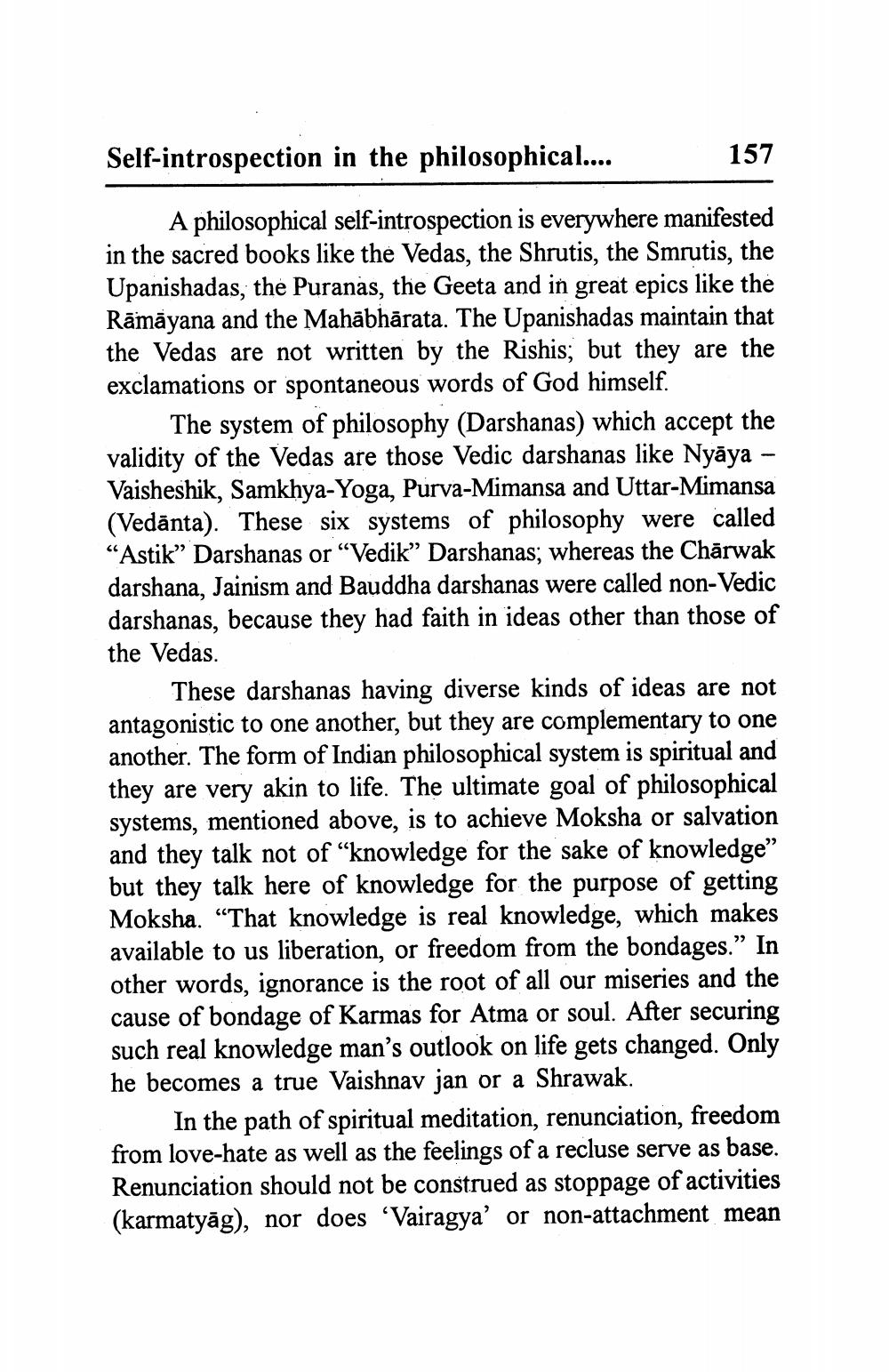________________
157
Self-introspection in the philosophical....
A philosophical self-introspection is everywhere manifested in the sacred books like the Vedas, the Shrutis, the Smrutis, the Upanishadas, the Puranas, the Geeta and in great epics like the Rāmāyana and the Mahabharata. The Upanishadas maintain that the Vedas are not written by the Rishis; but they are the exclamations or spontaneous words of God himself.
The system of philosophy (Darshanas) which accept the validity of the Vedas are those Vedic darshanas like Nyāya Vaisheshik, Samkhya-Yoga, Purva-Mimansa and Uttar-Mimansa (Vedānta). These six systems of philosophy were called "Astik" Darshanas or "Vedik" Darshanas; whereas the Charwak darshana, Jainism and Bauddha darshanas were called non-Vedic darshanas, because they had faith in ideas other than those of the Vedas.
These darshanas having diverse kinds of ideas are not antagonistic to one another, but they are complementary to one another. The form of Indian philosophical system is spiritual and they are very akin to life. The ultimate goal of philosophical systems, mentioned above, is to achieve Moksha or salvation and they talk not of "knowledge for the sake of knowledge" but they talk here of knowledge for the purpose of getting Moksha. "That knowledge is real knowledge, which makes available to us liberation, or freedom from the bondages." In other words, ignorance is the root of all our miseries and the cause of bondage of Karmas for Atma or soul. After securing such real knowledge man's outlook on life gets changed. Only he becomes a true Vaishnav jan or a Shrawak.
In the path of spiritual meditation, renunciation, freedom from love-hate as well as the feelings of a recluse serve as base. Renunciation should not be construed as stoppage of activities (karmatyāg), nor does 'Vairagya' or non-attachment mean




